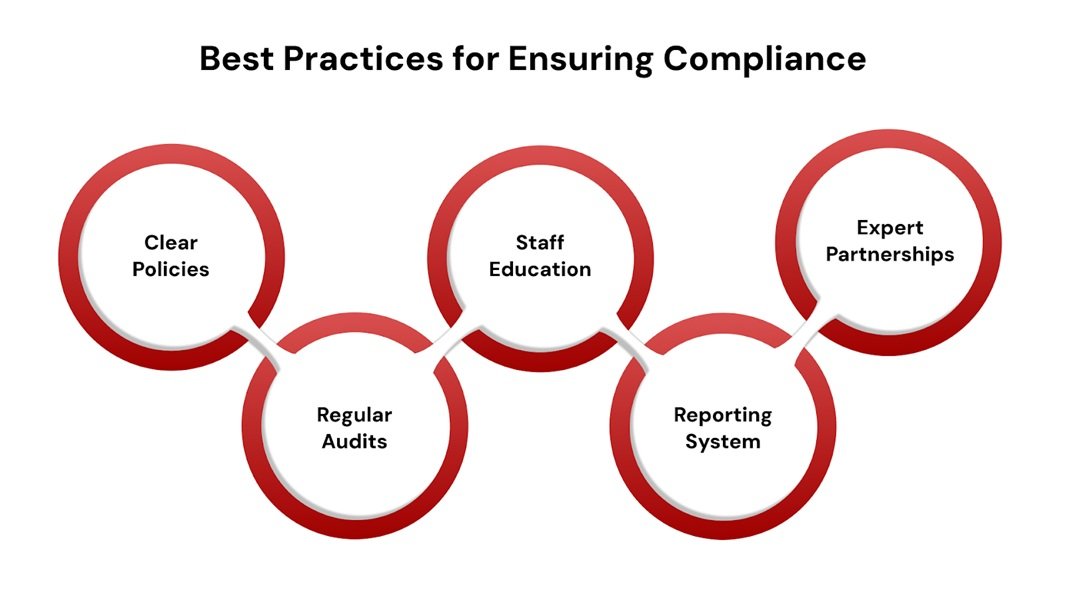Accounting and tax firms play a crucial role in ensuring compliance across industries. You might wonder how these firms tackle such a broad task. Well, they focus on three main aspects of compliance: understanding regulations, implementing strategies, and continuous monitoring. For instance, firms offering tax services in San Bernardino, CA, help businesses stay compliant with local, state, and federal regulations. They break down complex laws into simple, actionable steps, making it easier for businesses to follow. These firms also plan and structure financial activities to avoid penalties. Then, they monitor ongoing processes to ensure ongoing compliance. By focusing on these three key tasks, accounting and tax firms reduce the risk of non-compliance. This approach builds trust and reliability, crucial for any industry. Trust in these firms to handle compliance with care and expertise, so you can focus on what you do best: running your business.
Understanding Regulations
The first step to ensuring compliance is understanding the regulations that apply to each industry. Regulations differ greatly between sectors. An accounting firm must stay updated on these rules to guide your business effectively. For example, the Internal Revenue Service (IRS) regularly updates tax codes, which can significantly impact businesses. By staying informed, accounting firms can offer timely advice tailored to your specific needs. This reduces the risk of unexpected penalties and ensures you meet all legal obligations.
Implementing Strategies
Once they understand the regulations, accounting firms implement strategies to ensure compliance. These strategies involve structuring financial transactions, preparing necessary documents, and setting up internal controls. For example, in industries with rigorous reporting requirements, firms establish systems that automate financial record-keeping. Automation minimizes human errors and ensures you have accurate, up-to-date information when you need it. Moreover, these strategies often include tax optimization techniques to legally reduce tax liabilities, thereby increasing your business’s profitability while maintaining compliance.
Continuous Monitoring
Compliance doesn’t end with understanding and implementation. Continuous monitoring is vital. Accounting firms set up systems to regularly check compliance with current regulations. This involves routine audits and reviews of financial records. By doing this, they catch potential issues before they become significant problems. Regular monitoring also helps adapt to any changes in regulations promptly, ensuring uninterrupted compliance. For example, if a new regulation affects your industry, your accounting firm can modify strategies immediately to keep you compliant.
Comparative Overview
| Aspect | Impact on Business | Role of Accounting Firms |
|---|---|---|
| Understanding Regulations | Ensures that businesses know their legal obligations | Provide updated and accurate regulatory information |
| Implementing Strategies | Helps in managing financial activities and reducing liabilities | Develop and apply strategies tailored to business needs |
| Continuous Monitoring | Prevents issues before they escalate and maintains compliance | Conduct regular audits and adjust strategies as needed |
Building Trust and Reliability
Trust is key in any business relationship. Accounting firms help build this trust by ensuring compliance. Compliance shows that your business operates with integrity. This boosts your reputation with customers, partners, and regulators. When others see that you follow the rules, they are more likely to engage with you. This trust translates into business growth and opportunities.
The Role of Technology
Technology plays an increasing role in compliance. Many accounting firms use software to automate compliance tasks. These tools can track changes in regulations, prepare reports, and perform audits. This automation not only reduces errors but also saves time and resources. As technology advances, expect accounting firms to leverage more tools to enhance compliance efforts. The U.S. Small Business Administration provides resources and guides that highlight how technology aids in maintaining compliance.
Conclusion
The path to compliance is complex, but not unmanageable. Accounting and tax firms simplify this journey by breaking it down into manageable steps. They understand regulations, implement effective strategies, and ensure continuous monitoring. Through these actions, they help maintain your business’s integrity and reputation. Trust these experts to handle compliance, so you can focus on driving your business forward. Remember, ensuring compliance is not just about following rules; it’s about building a legacy of trust and reliability.



